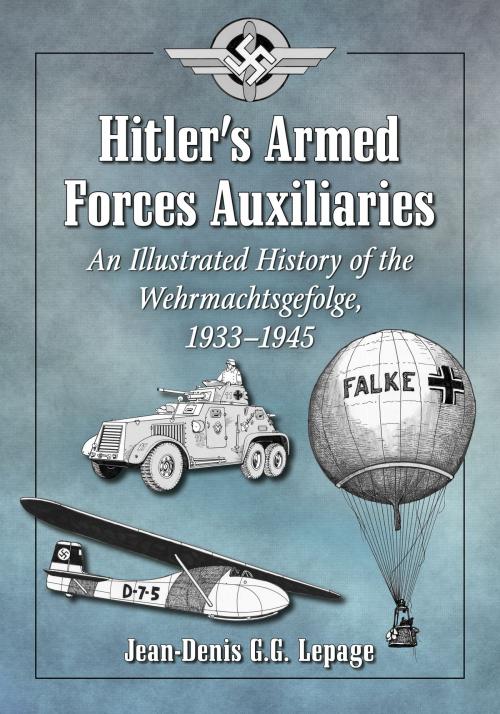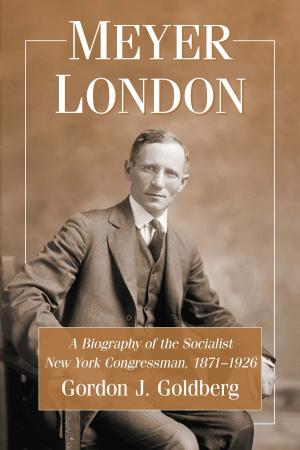Hitler's Armed Forces Auxiliaries
An Illustrated History of the Wehrmachtsgefolge, 1933-1945
Nonfiction, History, Military, World War II| Author: | Jean-Denis G.G. Lepage | ISBN: | 9781476620886 |
| Publisher: | McFarland & Company, Inc., Publishers | Publication: | November 20, 2015 |
| Imprint: | Language: | English |
| Author: | Jean-Denis G.G. Lepage |
| ISBN: | 9781476620886 |
| Publisher: | McFarland & Company, Inc., Publishers |
| Publication: | November 20, 2015 |
| Imprint: | |
| Language: | English |
The story of Hitler’s Wehrmachtsgefolge (armed forces auxiliaries) is less well known than that of Germany’s other armed forces in World War II, such as the panzer divisions, the Luftwaffe and the Kriegsmarine. The Organization Todt (construction company), Reichsarbeitsdienst (labor service), Nationalsozialistische Kraftfahrer Korps (driver’s corp) and Volkssturm (people’s militia) were given the status of armed forces auxiliaries to protect their members under the Geneva Conventions should they be taken prisoner. By 1944, the Wehrmachtsgefolge comprised 40 percent of the German armed forces, and their contribution to the war effort was far from negligible. This illustrated history documents the development, structure and organization, uniforms, regalia and technical data of these units and discusses their role in the war and during the prewar period.
The story of Hitler’s Wehrmachtsgefolge (armed forces auxiliaries) is less well known than that of Germany’s other armed forces in World War II, such as the panzer divisions, the Luftwaffe and the Kriegsmarine. The Organization Todt (construction company), Reichsarbeitsdienst (labor service), Nationalsozialistische Kraftfahrer Korps (driver’s corp) and Volkssturm (people’s militia) were given the status of armed forces auxiliaries to protect their members under the Geneva Conventions should they be taken prisoner. By 1944, the Wehrmachtsgefolge comprised 40 percent of the German armed forces, and their contribution to the war effort was far from negligible. This illustrated history documents the development, structure and organization, uniforms, regalia and technical data of these units and discusses their role in the war and during the prewar period.















